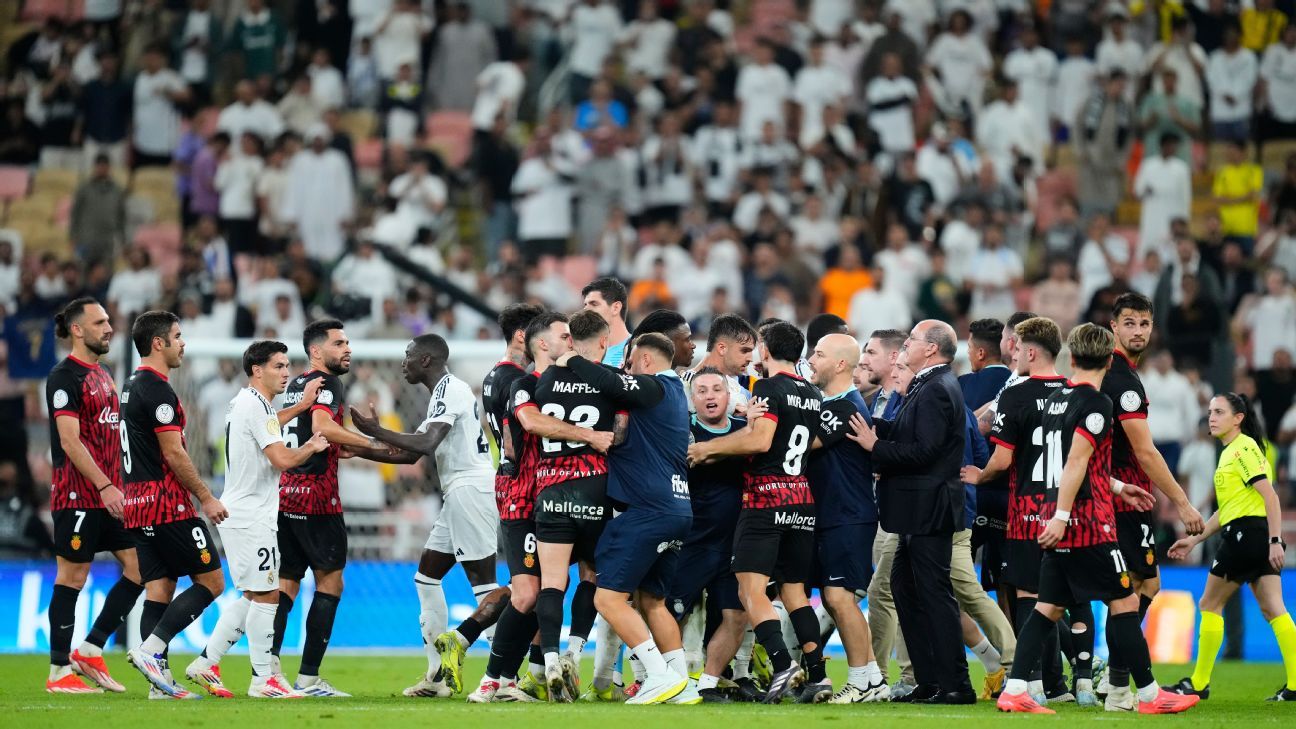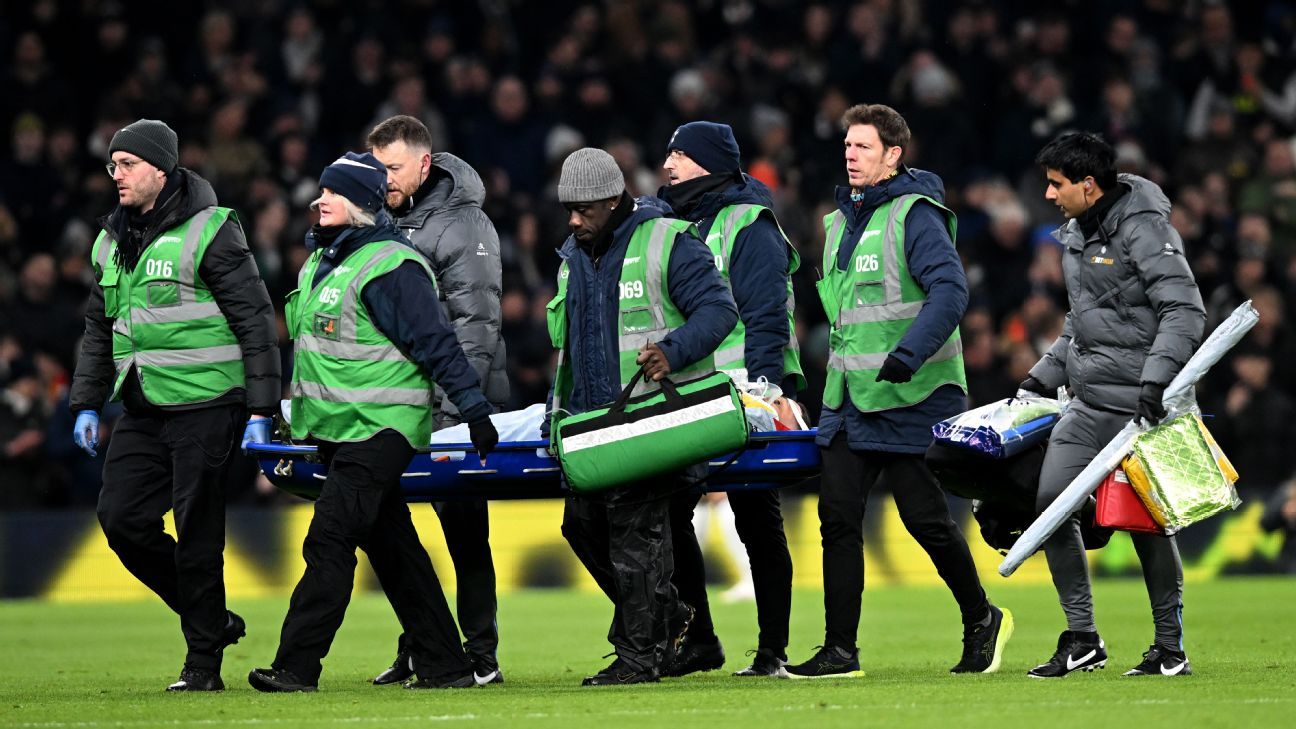Lizzy Becherano
Jun 26, 2024, 12:00 PM
EAST RUTHERFORD, N.J. -- Argentina triumphed 1-0 over Chile at MetLife Stadium in the Copa América on Tuesday, with Lautaro Martínez's lone goal in the 88th minute sending spectators into a frenzy and helping the Albiceleste to banish the ghosts of the 2015 and 2016 finals.
Argentina fans exploded into deafening screams, some jumping in unison with those in neighboring seats and others taking off jerseys to wave them, while the players embraced one another on the pitch. Lionel Scaloni's side had finally overcame the rivals who had handed them two bitter Copa América losses. Yes, it was only in the group stage this time, but it mattered.
Argentina outshot Chile 22-3, mimicking the statistics of the 2016 final when recording an 18-4 ratio before suffering defeat on penalties. This highly charged and physical match saw tension rise at each end, creating close calls for penalties and red cards. But in the end, one strike made all the difference.
Eight years ago, MetLife Stadium saw a different story play out. And it nearly cost Argentina the talent of Lionel Messi.
On June 26, 2016, Argentina lined up to face Chile in the Copa América Centenario final with the weight of the country's hopes on their shoulders. But none more so than Messi. Millions of fans were demanding that he avenge the result of the 2015 final, when Chile triumphed on penalties, and end Argentina's 22-year wait for silverware.
But there were concerns over his ability to lead the side as captain. Some Argentina fans doubted his leadership skills, questioned the emotional connection to the country after moving to Spain as a child, and criticized his personality with labels like "pecho frio" -- one who plays with a "cold chest" and without passion.
Though Messi was often the team's best player on the pitch and their leading goal scorer, he had yet to capitalize on that with a major trophy. He propelled the Albiceleste to new heights, but some fans continued to think of him as a failure with the national team for losing the 2014 World Cup final to Germany and the 2015 Copa América final to Chile.
The trend to compare Messi with Diego Maradona fueled the country's disapproval -- noting that El Pibe de Oro ("The Golden Boy") lived up to expectations only after winning the 1986 World Cup and the Golden Ball as the tournament's best player.
But in reaching the 2016 final, Argentina hoped that Messi would finally end the country's long wait. Some 82,026 spectators in MetLife Stadium, the largest audience for a soccer match in New Jersey's history, watched a hotly contested match that saw a red card to both teams in the first half, with Chile's Marcelo Diaz exiting the pitch in the 28th minute and Argentina's Marcos Rojo departing moments later.
Ultimately, fine defensive efforts from both sides saw the game end in a 0-0 draw over 120 minutes to force penalties for a second-consecutive year between the two teams. Messi stepped up to take the first penalty for Argentina, but sent the ball into the stands as a collective gasp was heard around the world. Though his teammate Lucas Biglia also failed to convert his penalty, handing Chile a 4-2 shootout triumph, blame lashed down upon Messi in the aftermath.
The camera panned to speechless Argentina fans around the stadium before showing a distraught Messi on the pitch. Moments after the game, in the midst of a downward spiral, an emotional Messi once again shocked the world with an unprecedented announcement: "I am done playing with the national team."
One of the world's greatest players, who boasted multiple Ballon d'Or awards and Champions League and LaLiga titles, retired from Argentina without a major trophy. "I tried my hardest," Messi said. "I tried everything possible. It hurts me more than anyone, but it is evident that this is not for me. I want more than anyone to win a title with the national team, but unfortunately, it did not happen."
Thankfully for Argentina and football fans around the world, that decision lasted only until mid-August. And, after that, Messi led his national team to the 2021 Copa América, the 2022 World Cup and the 2022 Finalissima.
Now, some 2,919 days after his "retirement" on the pitch, Messi returned to MetLife Stadium as captain, just a day after celebrating his 37th birthday. Eight years on, he once again led Argentina as captain, but supporters are no longer questioning his ability to lead, his devotion, or personality.
Instead, fans expressed gratitude for the moments of immense joy he has given them through flags, banners and photos of the World Cup. The criticism and concerns from 2016 turned into cheers and chants of "Messi! Messi! Messi!" in 2024.
Messi's name garnered the loudest cheers when the lineup echoed throughout MetLife, while the No. 10 jerseys overwhelmed the stands. When he attempted a shot on goal or initiated the buildup of a goal-scoring opportunity, fans immediately made the "bowing down" hand gesture while singing his name.
He was close to scoring three times, hitting the post once, and needed treatment on a thigh issue in the first half. But as his late corner caused havoc, Martínez turned in the winner to propel Argentina to a second Copa América 2024 group stage win, which ensured a place in the knockout rounds. (The Albiceleste lead Group A, three points clear of second-placed Canada with a final group stage game still to play.)
"The only thing left after eight years is the stadium," Scaloni declared afterward.
Indeed, the tears, disappointment and dark declarations of 2016 now feel like a distant memory that Messi can leave in the past.
 (1).png)
 6 months ago
28
6 months ago
28


















